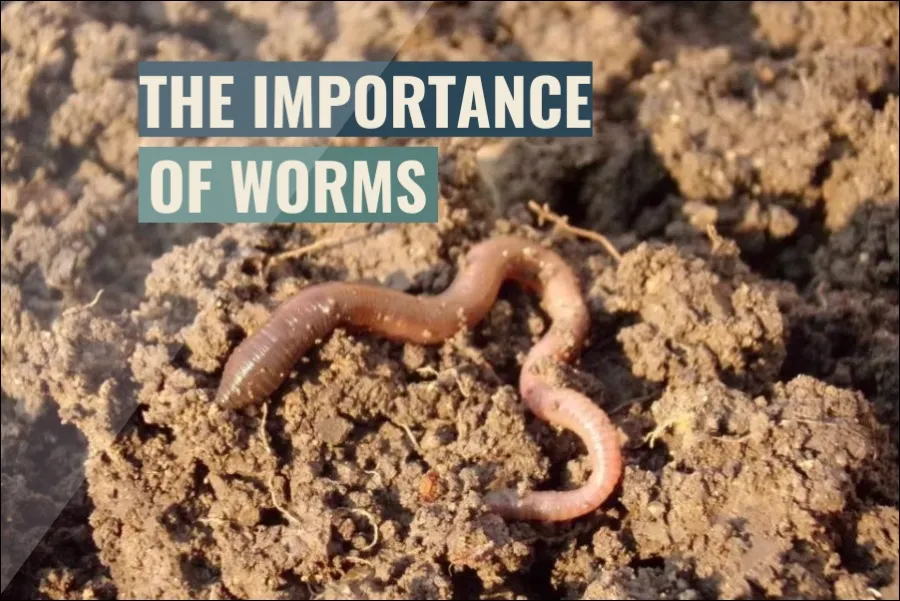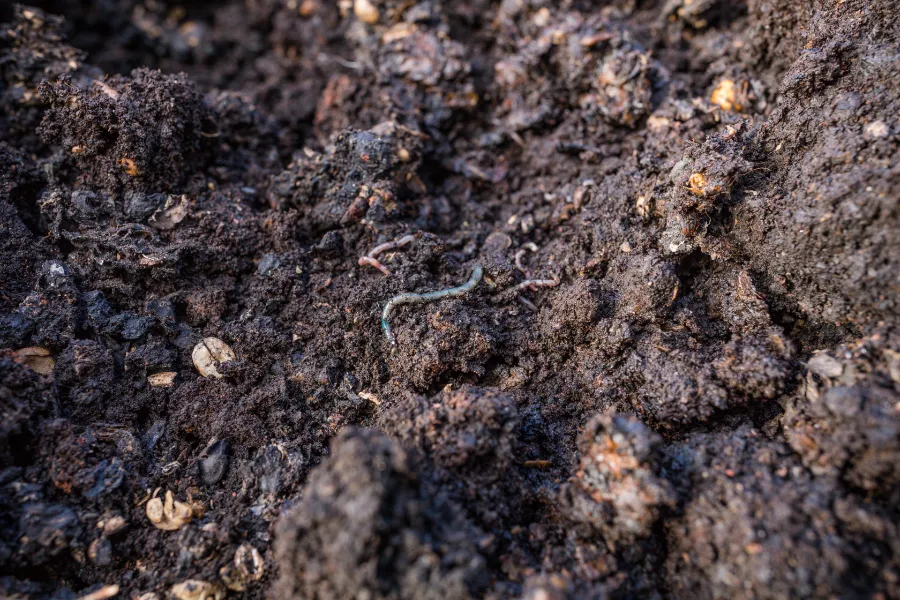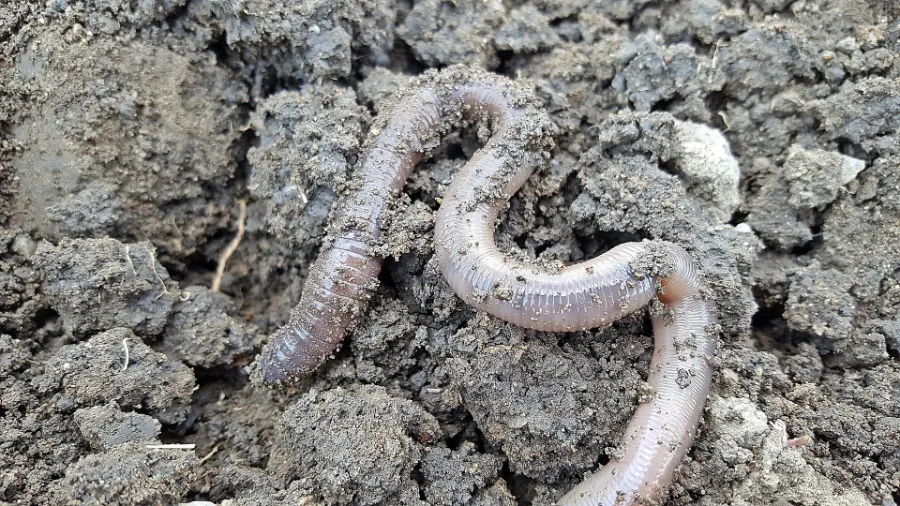
Worms may be small, but they play a big role in maintaining the health and productivity of ecosystems. From improving soil structure to serving as a food source for other animals, worms are an essential part of the web of life. In this article, we will explore some of the many ways in which worms are important and why we should pay attention to these often-overlooked creatures.
Worms are essential for soil health, plant growth, and waste management. They also contribute to biodiversity as a food source and by shaping ecosystems. Some worms produce substances with medicinal properties being studied for use in treating medical conditions.
When it comes to the natural world, worms are often overlooked. But these humble creatures play a vital role in maintaining the health of ecosystems and are an important part of the web of life. From improving soil fertility to helping to control pest populations, worms have a variety of important functions. In this article, we will delve into the many reasons why worms are important and why we should appreciate these unsung heroes of the natural world.
1. Soil Health
Worms are vital to the health and well-being of soil, as they play a crucial role in decomposing organic matter and converting it into nutrient-rich compost. When worms consume organic material, they break it down into smaller pieces and mix it with soil, helping to create a more fertile and nutritious environment for plants. This can be particularly beneficial for soil that is poor in quality or lacking in nutrients, as worms can help to improve soil structure and fertility.
One of the primary ways in which worms contribute to soil health is through their ability to consume and break down organic matter. As worms consume organic material, they produce casts, which are small pieces of partially digested organic matter that are mixed with soil. These casts contain a variety of nutrients, including nitrogen, phosphorous, and potassium, which are essential for healthy plant growth.
In addition to providing nutrients to soil, worms also help to improve soil structure by creating channels and tunnels as they move through the soil. These channels and tunnels help to improve the soil’s ability to drain and retain water, which can be beneficial for plants. They also help to aerate the soil, which allows oxygen to reach the roots of plants and promotes healthy root growth. You can use worms you find on the ground and bring them your yard.
Another benefit of worms is that they can help to reduce the need for chemical fertilizers. Chemical fertilizers are often used to provide plants with the nutrients they need to grow, but they can be harmful to the environment if used excessively. By improving soil fertility through the use of worms and compost, we can reduce the need for chemical fertilizers and minimize their negative impact on the environment.
Overall, worms are an essential component of healthy soil, as they help to improve soil structure, fertility, and nutrient content. By promoting worms in our gardens and compost systems, we can help to create a more sustainable and environmentally friendly way of growing plants.

2. Plant Growth
Worms are important for plant growth because they help to improve the structure and nutrient content of the soil. As worms move through the soil, they create channels and tunnels that allow air, water, and nutrients to reach the roots of plants more easily. These channels also help to break up compacted soil, which can make it easier for roots to grow and for plants to access the resources they need.
In addition to improving the structure of the soil, worms also contribute to its fertility by adding organic matter through their burrowing and excretion of castings. Castings are the partially digested organic matter that worms excrete after they have eaten. These castings are rich in nutrients and can help to improve the overall nutrient content of the soil.
Worms also play a role in the decomposition of organic matter in the soil, which helps to recycle nutrients back into the ecosystem. As worms consume dead plants and animals, they break down these materials into smaller pieces that can be more easily absorbed by plants. This helps to keep nutrients in circulation and prevents them from being lost from the ecosystem.
The benefits of worms for plant growth are not limited to the soil. Worms can also help to control pest populations by feeding on insects and other small invertebrates that might otherwise damage plants. This can help to reduce the need for chemical pesticides, which can have negative impacts on the environment and human health.
In summary, worms are important for plant growth because they help to improve the structure and nutrient content of the soil, recycle nutrients back into the ecosystem, and control pest populations. These benefits can help to promote healthy and productive plant growth in a variety of settings, including gardens, agricultural fields, and natural ecosystems.

3. Improvement of waste management
Worms are important decomposers, which means they help to break down organic matter such as dead plants and animals. This process, called decomposition, is essential for the recycling of nutrients back into the ecosystem and for the maintenance of healthy ecosystems.
As worms consume dead organic matter, they break it down into smaller pieces that can be more easily absorbed by plants and other organisms. This helps to keep nutrients in circulation and prevents them from being lost from the ecosystem. In addition, the activities of worms in the soil can help to improve the structure and fertility of the soil, which can promote the growth of plants and other organisms.
Worms are often used in composting systems to help break down organic waste and produce a nutrient-rich soil amendment. Composting is the process of breaking down organic matter such as food scraps and yard waste into a soil-like substance that can be used to enrich soil and promote plant growth. When worms are added to a composting system, they can help to speed up the decomposition process and produce a higher quality compost.
In addition to their role in composting, worms can also be used in vermicomposting systems to convert food waste into a nutrient-rich soil amendment. Vermicomposting is the process of using worms to break down organic waste and produce compost. This can be an effective way to reduce the amount of food waste that ends up in landfills, where it can produce methane, a potent greenhouse gas.
In summary, worms are important for waste management because they help to break down organic matter and recycle nutrients back into the ecosystem. They can be used in composting and vermicomposting systems to convert organic waste into a nutrient-rich soil amendment, which can help to reduce the amount of waste that ends up in landfills.

4. Contribution to biodiversity
Worms are an important part of many ecosystems and play a variety of roles that help to maintain biodiversity. In natural systems, worms can be found in a range of habitats including forests, grasslands, and wetlands, where they help to recycle nutrients and maintain the health of the soil.
One way that worms contribute to biodiversity is by providing a food source for other animals. Many species of birds, mammals, and other animals rely on worms as a source of nutrition, and the presence of worms can help to support healthy populations of these animals.
In addition to serving as a food source, worms also play a role in shaping the ecosystems in which they live. As worms move through the soil, they create channels and tunnels that can help to promote the growth of plants and other organisms. The burrows of worms can also provide shelter for other animals, such as small mammals and invertebrates.
Worms are also important indicators of ecosystem health. The presence or absence of certain species of worms can provide information about the overall health of an ecosystem, and changes in the abundance of worms can be used to monitor the effects of environmental changes or human activities.
In summary, worms are an important part of many ecosystems and contribute to biodiversity in a variety of ways. They provide a food source for other animals, help to shape the ecosystems in which they live, and serve as indicators of ecosystem health. These roles help to maintain the diversity of life on earth and ensure the overall health and productivity of ecosystems.
5. Production of medical substances
Some worms, particularly those belonging to the family Filarioidea, produce substances that have been shown to have medicinal properties. These substances are being researched for their potential use in treating a variety of medical conditions.
One example of a worm-derived substance with medicinal properties is filarial nematode secretions, which have been shown to have anti-inflammatory and immune-modulatory effects. These secretions are being researched for their potential use in the treatment of autoimmune diseases such as multiple sclerosis and rheumatoid arthritis.
Another example is the substance avermectin, which is produced by the soil-dwelling worm Streptomyces avermitilis. Avermectin has been shown to have antiparasitic and insecticidal properties and is used in the treatment of a variety of parasitic infections including river blindness and head lice.
In addition to these examples, there is ongoing research into the potential medicinal uses of other worm-derived substances such as Schistosoma mansoni egg antigens, which have been shown to have immune-modulatory effects, and brugian filarial antigens, which have been shown to have anti-inflammatory effects.
In summary, some worms produce substances with medicinal properties that are being researched for their potential use in the treatment of a variety of medical conditions. These substances include filarial nematode secretions, avermectin, Schistosoma mansoni egg antigens, and brugian filarial antigens. Further research is needed to fully understand the medicinal potential of these substances and to determine their safety and effectiveness for use in humans.
What would happen if there were no worms?
If there were no worms, the impacts on ecosystems and human society would be significant. Worms perform a variety of important functions in the environment, including improving soil structure and fertility, breaking down organic matter, and serving as a food source for other animals. Without worms, these functions would not be performed, which could have negative consequences for the overall health and productivity of ecosystems.
One example of the potential impacts of a world without worms is on agriculture. Worms are important for agriculture because they help to improve the soil, which can promote the growth of crops. Without worms, the structure and fertility of the soil may decline, which could lead to reduced agricultural productivity. This could have negative impacts on food security and the economy.
In summary, the loss of worms would have significant consequences for ecosystems and human society. The specific impacts would depend on the specific functions that worms perform in a given ecosystem, but overall, the health and productivity of ecosystems would likely decline.

In conclusion
Worms are small but play a big role in maintaining the health and productivity of ecosystems. They are essential for soil health, plant growth, waste management, and biodiversity. Some worms also produce substances with medicinal properties being studied for use in treating medical conditions. When it comes to the natural world, worms are often overlooked but they play a vital role in maintaining the health of ecosystems and are an important part of the web of life. Worms help to improve soil fertility and control pest populations, among other functions. They are essential for decomposition and the recycling of nutrients back into the ecosystem. Worms also serve as a food source for other animals and help to shape ecosystems. Some worms produce substances with medicinal properties being studied for use in treating medical conditions. In terms of soil health, worms decompose organic matter and convert it into nutrient-rich compost, improving soil structure and fertility. They also create channels and tunnels, which improve the soil’s ability to drain and retain water and aerate the soil, promoting healthy root growth. Worms can also reduce the need for chemical fertilizers. In terms of plant growth, worms improve soil structure and fertility, and their activities in the soil can also help to control pest populations. In terms of waste management, worms break down organic matter and recycle nutrients back into the ecosystem. They are also used in composting and vermicomposting systems to convert organic waste into a nutrient-rich soil amendment, reducing the amount of waste in landfills. In terms of biodiversity, worms are a food source for other animals and help to shape ecosystems. They are also indicators of ecosystem health. In terms of medicinal properties, some worms produce substances with medicinal properties that are being researched for their potential use in treating medical conditions.
